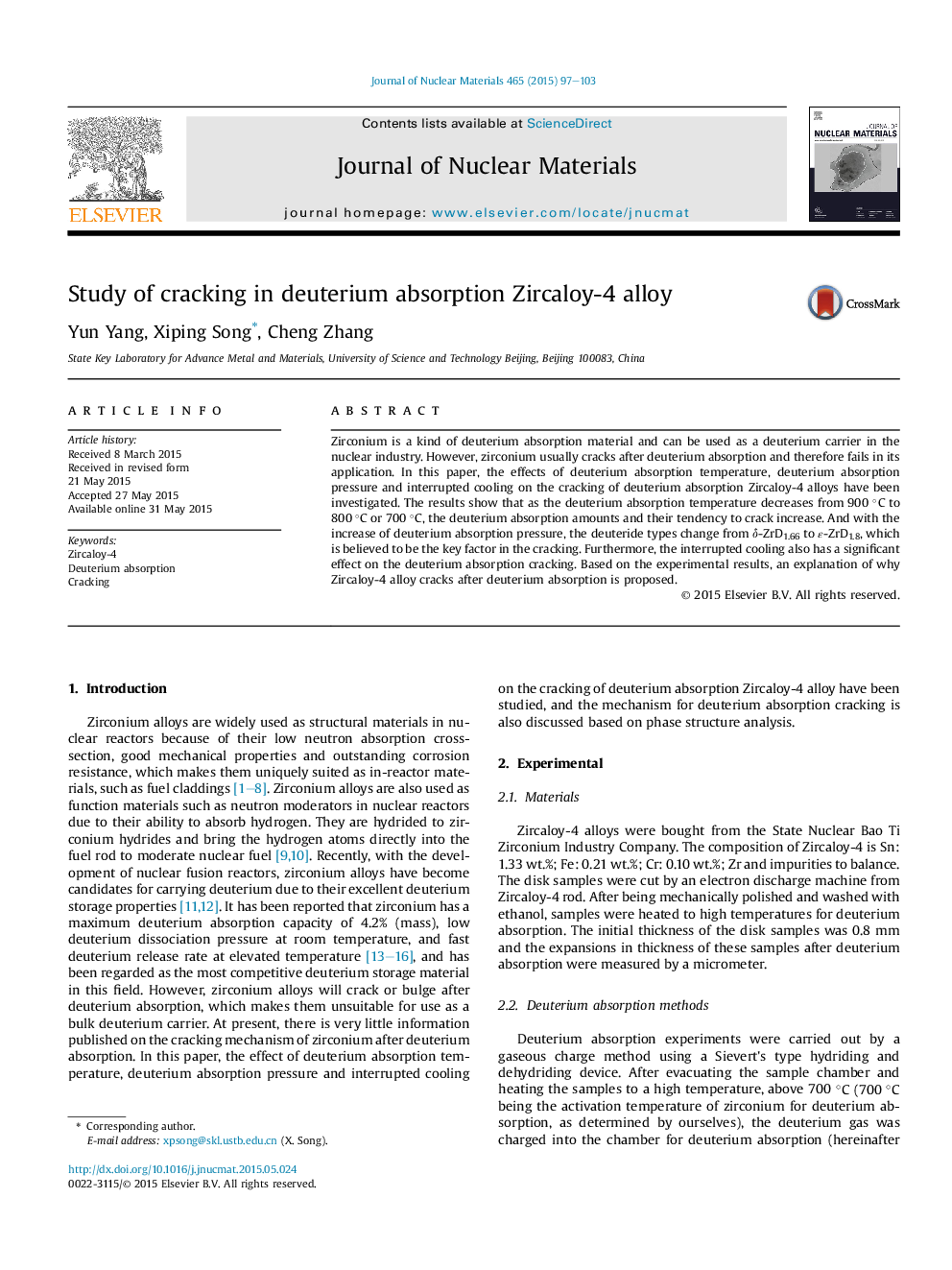| Article ID | Journal | Published Year | Pages | File Type |
|---|---|---|---|---|
| 7965153 | Journal of Nuclear Materials | 2015 | 7 Pages |
Abstract
Zirconium is a kind of deuterium absorption material and can be used as a deuterium carrier in the nuclear industry. However, zirconium usually cracks after deuterium absorption and therefore fails in its application. In this paper, the effects of deuterium absorption temperature, deuterium absorption pressure and interrupted cooling on the cracking of deuterium absorption Zircaloy-4 alloys have been investigated. The results show that as the deuterium absorption temperature decreases from 900 °C to 800 °C or 700 °C, the deuterium absorption amounts and their tendency to crack increase. And with the increase of deuterium absorption pressure, the deuteride types change from δ-ZrD1.66 to ε-ZrD1.8, which is believed to be the key factor in the cracking. Furthermore, the interrupted cooling also has a significant effect on the deuterium absorption cracking. Based on the experimental results, an explanation of why Zircaloy-4 alloy cracks after deuterium absorption is proposed.
Related Topics
Physical Sciences and Engineering
Energy
Nuclear Energy and Engineering
Authors
Yun Yang, Xiping Song, Cheng Zhang,
